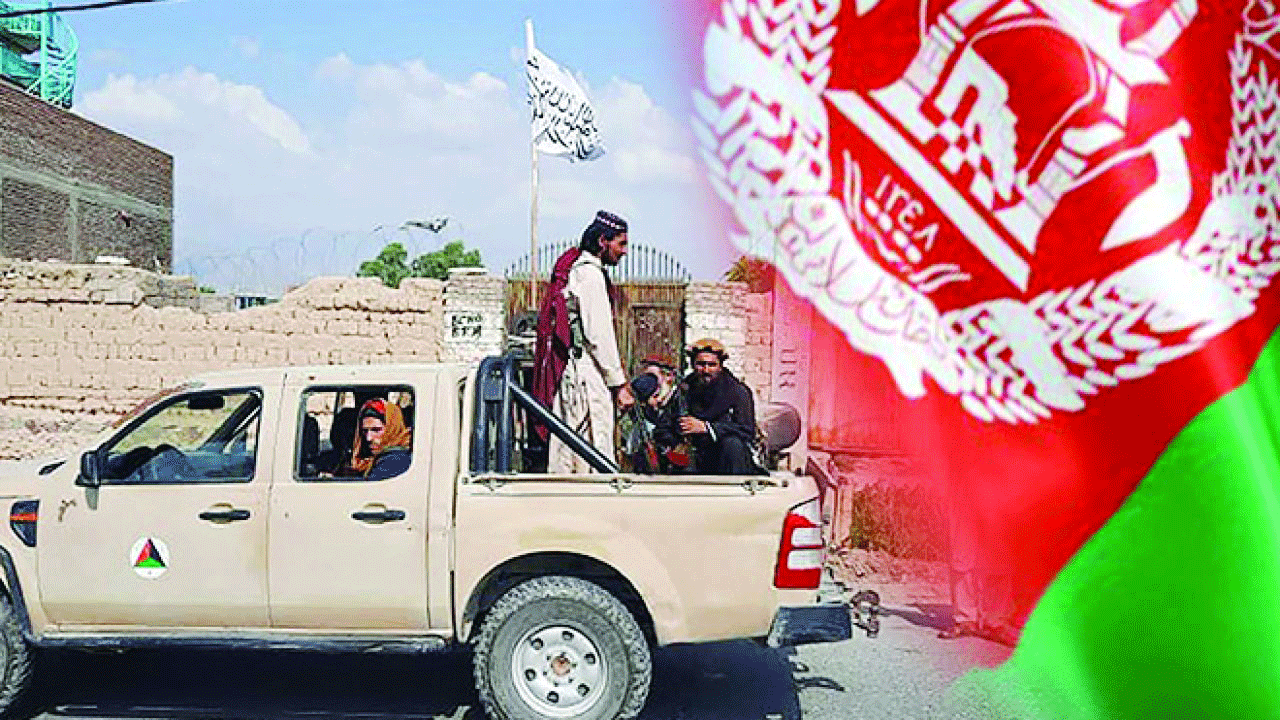China, Pakistan and India compete for own position
New Great Game in Afghanistan
Ibrahim Khalil:In the nineteenth century, the Russian and British empires fought for Afghanistan, and in the twentieth century, the United States and the Soviet Union fought. The new Great Game sees Pakistan with its partner China eager to strengthen its grip on the area, while the Taliban take control of the crucial, landlocked country.
Pakistan has close relations to the Taliban and has been accused of aiding the Islamist group in its fight against the US-backed government in Kabul, which Islamabad denies. Pakistan Prime Minister Imran Khan said Afghans had broken the “shackles of enslavement” when the Taliban conquered Kabul last week.
According to media reports, several Pakistani officials are involved in the Taliban’s discussions to settle on its government model.
Pakistan wants an inclusive political settlement in Afghanistan that ensures peace and security in the area, but the “primary role remains with the Afghans,” according to a Foreign Office spokeswoman in Islamabad.
China, which has no previous engagement in Afghanistan but has a strong connection with Pakistan, has extended an olive branch to the Taliban, enticing them with the country’s mineral wealth, which includes vast lithium reserves, a critical component for electric vehicles. China is also considering bolstering security along its restricted land route across Pakistan’s Karakoram mountains.
Then there’s India, Pakistan’s old foe, which has been involved in a military standoff with China for more than a year along their
disputed border. India was a strong ally of the deposed Kabul regime, and as Pakistan and China grow in importance in a Taliban-ruled Afghanistan, New Delhi is becoming increasingly concerned.
China, on the other hand, claims that reaching out to the Taliban is primarily to defend its western Xinjiang region from anti-Beijing East Turkestan Islamic Movement (ETIM) terrorists seeking refuge in Afghanistan.
“While Pakistan may consider using Afghanistan against India, this is not always the case for China,” said Zhang Li, a South Asian studies professor at Sichuan University.
“China’s main priority right now is for the Taliban to… establish an inclusive and moderate rule in order to prevent terrorism from spreading to Xinjiang and the rest of the area. It remains to be seen if there is any other calculus beyond that.”
According to the US government, ETIM is no longer a formal organization and is now a broad name China employs to oppress a variety of Muslim ethnic groups in its Xinjiang province, including Uyghurs. China denies all allegations of human rights violations.
According to Brahma Chellaney, professor of strategic studies at the Centre for Policy Research in New Delhi, China has dangled the potential of giving the Taliban with the two things they need to govern Afghanistan: diplomatic recognition and much-needed infrastructure and economic help.
“An opportunistic China would almost certainly seize the opportunity to make strategic advances into mineral-rich Afghanistan and increase its infiltration of Pakistan, Iran, and Central Asia,” he predicted.
Pakistan delights, India in discomfort
According to Raza Ahmad Rumi, a political commentator at Ithaca College in New York, “there was a lot of rejoicing in Pakistan over India’s discomfiture at the turn of events.” Since their independence in 1947, when the subcontinent was divided, the two countries have fought three wars.
“The jubilation in Pakistan shown on social media and on television screens was mostly tied to the dismantling of Indian influence, as traditional policy circles saw (Afghan President Ashraf) Ghani’s close ties with India as a threat,” Rumi added.
India has terrible memories of the Taliban’s previous reign of terror from 1996 to 2001, as well as the group’s ties to Pakistan.
Near 1999, an Indian Airlines airliner was hijacked and crash-landed in Kandahar, Afghanistan. In exchange for the return of the passengers, New Delhi released three senior Pakistani terrorists from its prisons, and the Taliban permitted the hijackers and the released prisoners to return to Pakistan.
“Today, we are in the process of adjusting to reality. In Afghanistan, we must play the long game. Although we do not have a continuous border, we have stakes in the area “Former Indian ambassador to Kabul Jayant Prasad said.
Over the past year, as the Taliban grew in power and US-brokered talks began in Doha, Indian officials established contact with the organisation, according to diplomatic sources in New Delhi.
“We’re talking to everyone,” one of them stated, but declined to go into detail about the negotiations. At home, there has been criticism that India put all its eggs in the Ghani government’s basket while the US had already began discussions with the Taliban, and that New Delhi waited too long.
“This isn’t a repeat.”
Nonetheless, the Taliban may be attracted to India as a big economic actor if they want to avoid being overly reliant on China, according to the source.
India has minor and large development projects in each of Afghanistan’s 34 provinces, including the Kabul parliament complex, which was overrun by gun-toting Taliban members after they swept into the city last week.
While the Taliban takeover was a setback for India, Myra MacDonald, author of three books on South Asia and a former Reuters journalist, said it was not game over for New Delhi.
“This isn’t a repeat of a previous event. Everyone will be considerably more cautious this time about allowing Islamist terrorism in Afghanistan to erupt as it did before 9/11.”
“Plus, in terms of economic strength, India is far stronger than Pakistan this time.”
According to Reuters, impoverished Afghanistan requires assistance from countries throughout the region, including Iran, as well as the United States and Russia.
“We expect them to assist us and support our people, particularly in the health sector, business sector, and mining sector,” Waheedullah Hashimi, who has access to the group’s decision-making, said.
President Joe Biden tests positive for COVID-19 while campaigning in Las Vegas, has ‘mild symptoms’
International Desk: President Joe Biden tested positive for COVID-19 while traveling Wedne…








